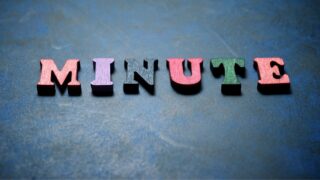When you have to complete a task, it’s extremely important to follow instructions. Otherwise, you may make a mistake, and that could affect your academics, professional relationships, and so on. Still, it’s easy to read the rules and miss an important aspect. The caveats are just as relevant as every other aspect of any set …
English
It seems like some people can get away with anything. Most people, however, are much less lucky. We all know that one person who just never has to face the consequences of their actions. They can do anything without drawing any unwanted attention. Nonetheless, at some point, the majority of those people tend to reap …
Do you want a new house? Well, it’s not just going to build itself. Several important steps go into realizing such an ambition. You need to figure out your needs, develop a budget, draw up a blueprint, source supplies, call the right tradespeople, and so on. This simply won’t be possible without consistent effort and …
Sometimes things don’t work out, no matter how hard you try. One way to talk about that is to use the expression “to no avail,” but there are other options, too. Let’s explore all the varied ways to express inevitable failure in English. What is the meaning of “to no avail”? The expression “to …
A non-native English speaker asks a coworker, who is a native speaker, whether it should be “suggest to go” or “suggest going.” The coworker responds, “The two expressions seem to be correct, but I think ‘suggest going’ is a better phrase.” Both ended up scratching their heads and started googling for some grammatical explanations. So, …
With the hustle and bustle of modern life, we may go days, months, or even years without seeing our friends or beloved family members. This is unfortunate, but it can’t always be helped. At the end of the day, work and other obligations must come before most social relationships. Similarly, it’s also very common to …
It’s good to feel welcome. Whether you’ve met someone for the first time or reunited with an old friend, a comforting feeling comes from the knowledge that they want to see you again. As human beings, we all crave acceptance, and it feels nice when we can finally get it. There are many ways to …
You are writing an email response to an ideal client whom you have just convinced to get on a call regarding the service you offer. But, as you type your closing remark, you suddenly get caught in the weeds on the expression “looking forward to talking to you.” You end up contemplating on whether to …
People are perceptive, and oftentimes, they perceive more than you think. You may put in a ton of effort to be subtle, but your efforts won’t always be fruitful. On the other hand, you may want to be noticed. Whether you’re doing well at work or trying to impress a romantic partner, you want to …








